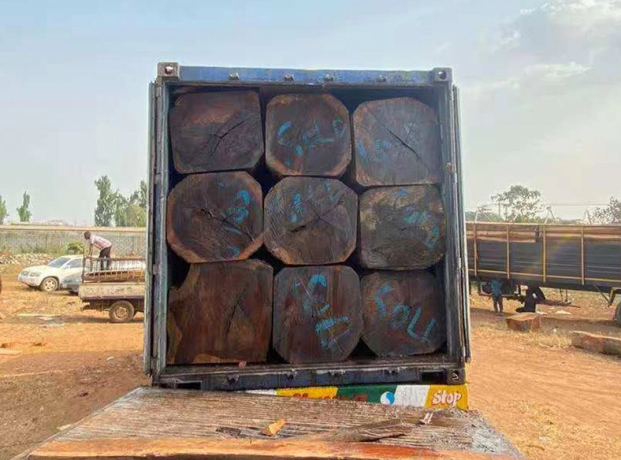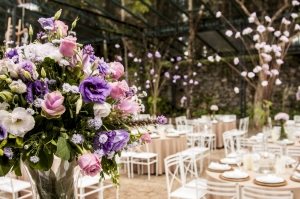please click here:
https://www.shdtimber.com/hardwood.html
Okoume wood, derived from the Aucoumea klaineana tree native to Central Africa, particularly Gabon, is a unique hardwood prized for its lightweight, attractive appearance, and versatility. This article explores the origins, physical characteristics, common applications, benefits, limitations, and sustainability of Okoume wood, providing an in-depth understanding of why it is a favored material in marine construction, furniture making, and beyond.
Origins and Botanical Characteristics of Okoume Wood
The Aucoumea klaineana Tree
Okoume wood comes from the Aucoumea klaineana tree, a medium to large hardwood species found predominantly in the equatorial rainforests of Gabon, the Republic of Congo, and Equatorial Guinea. The tree can reach heights of 100 to 130 feet (30 to 40 meters) with trunk diameters ranging from 3 to 6 feet (1 to 1.8 meters). It grows quickly and in dense stands, which supports sustainable harvesting practices.
Ecological Role and Conservation Status
Okoume plays a vital ecological and economic role in Central Africa. It is the most harvested timber species in the region and is even featured on the coat of arms of Gabon, symbolizing its importance. The tree is light-demanding, often colonizing abandoned fields and savannahs, and regenerates primarily in large forest gaps or along logging roads. Despite being classified as “Vulnerable” by the IUCN due to past population declines from logging, current research suggests that sustainable management and silviculture practices are helping maintain its population and timber quality over time.
Physical and Mechanical Properties of Okoume Wood
Appearance and Texture
Okoume wood is often mistaken for mahogany due to its pinkish-brown to pale red hue and lustrous finish, earning it the nickname "Okoume Mahogany." It has a uniform texture with a straight to slightly wavy grain that is interlocked, giving it an attractive and decorative appearance suitable for veneers and fine woodworking.
Density and Hardness
Okoume is a relatively lightweight hardwood, with an average dried weight of about 27 pounds per cubic foot (430 kg/m³) and a basic specific gravity of approximately 0.35 to 0.43. It has a Janka hardness rating of around 400 lbf (1790 N), which is softer than many other hardwoods, making it easier to work with but less resistant to wear.
Strength and Elasticity
The wood exhibits a modulus of rupture of about 10,870 lbf/in² (75 MPa) and an elastic modulus near 1,228,000 lbf/in² (8.47 GPa). Its crushing strength is around 5,250 lbf/in² (36.2 MPa), indicating moderate structural strength. These properties make Okoume suitable for applications requiring lightweight but reasonably strong materials.
Common Uses of Okoume Wood
Marine Applications
One of the most notable uses of Okoume plywood is in boatbuilding, especially for racing boats and stitch-and-glue construction methods. Its lightweight nature and ease of bending make it ideal for marine plywood panels. However, because Okoume is not naturally rot-resistant, it requires sealing with fiberglass, epoxy, or varnish to protect it from moisture and prolong its durability in marine environments.
Furniture and Interior Joinery
Okoume's attractive grain and finish make it a popular choice for furniture manufacturing, kitchen cabinets, and interior paneling. Its softness allows for smooth sanding and finishing, giving a lustrous appearance that enhances aesthetic appeal. It is commonly used as a veneer over cores made from pine, poplar, or hardwood to improve strength while maintaining a pleasing look.
Musical Instruments and Specialty Woodworking
Due to its tonal qualities and workability, Okoume has found a niche in musical instrument making, particularly in affordable acoustic guitars. It is often used as a substitute for mahogany in guitar bodies and necks, especially in lower-cost models. While it produces a distinct tone, some craftsmen note that it can be more prone to movement and requires careful handling.
Benefits of Using Okoume Wood
-
Lightweight and Easy to Work: Its low density makes Okoume easy to handle, cut, and bend, which is advantageous in boatbuilding and furniture making.
-
Attractive Appearance: The uniform grain and pinkish hue provide a visually appealing finish suitable for veneers and fine woodworking.
-
Fast Growth and Regeneration: The species' rapid growth supports sustainable harvesting when managed properly.
-
Versatility: Okoume can be used in a variety of applications, from marine plywood to musical instruments and cabinetry.
Limitations and Considerations
-
Lack of Natural Durability: Okoume is not rot-resistant and must be properly sealed to prevent moisture ingress, especially in outdoor or marine environments.
-
Softness: Its relatively low hardness means it is less durable against wear and dents compared to harder hardwoods.
-
Health Precautions: Dust from Okoume wood can cause skin, eye, and respiratory irritation, requiring proper protective equipment during woodworking.
-
Cost and Availability: High-quality Okoume plywood, particularly those certified for sustainability, can be more expensive due to shipping and certification costs.
Sustainability and Certification
Okoume wood harvesting is regulated to ensure ecological balance and support local economies. For example, in Gabon, laws prohibit the export of raw Okoume logs; processing must occur locally to benefit communities. The most reputable Okoume plywood, such as Joubert Okoume, carries certifications from the Forestry Stewardship Council (FSC) and Lloyd's of London, guaranteeing sustainable forestry practices and product quality. Annual harvesting is limited to a small percentage of the total resource to prevent overexploitation.
How to Work with Okoume Wood
Cutting and Shaping
Due to its softness and grain structure, Okoume can be challenging to plane with standard tools and may require sharper blades or adjusted bevel angles. It sands easily and can be flattened with minimal effort. Its ability to bend well makes it ideal for curved surfaces in boatbuilding and furniture design.
Finishing and Sealing
To maximize durability, especially in moisture-prone environments, Okoume surfaces must be sealed with epoxy, varnish, or fiberglass coatings. This protects the wood from rot and swelling. For interior uses, standard wood finishes can enhance its natural luster.
Future Trends and Market Outlook
With the global decline in traditional mahogany supplies, Okoume is increasingly recognized as a viable alternative for lightweight hardwood applications, including musical instruments and affordable furniture. Its availability and cost-effectiveness make it attractive for manufacturers seeking sustainable and versatile materials.
Frequently Asked Questions About Okoume Wood
Q1: Is Okoume wood the same as mahogany?
A1: No, Okoume is often called Okoume Mahogany due to its similar appearance, but it is a different species (Aucoumea klaineana) and not true mahogany.
Q2: Can Okoume wood be used outdoors?
A2: Okoume is not naturally rot-resistant and must be sealed with epoxy or fiberglass coatings to be suitable for outdoor or marine use.
Q3: What makes Okoume plywood ideal for boatbuilding?
A3: Its lightweight, ease of bending, and smooth finish make it excellent for stitch-and-glue boat construction, provided it is properly sealed.
Q4: How does Okoume compare to other hardwoods in terms of hardness?
A4: Okoume is relatively soft with a Janka hardness of about 400 lbf, softer than many hardwoods, which makes it easier to work but less durable against wear.
Q5: Is Okoume wood sustainably harvested?
A5: Yes, particularly in Gabon, Okoume harvesting is regulated with certifications like FSC to ensure sustainable forestry and community benefits.
Article Summary
Okoume wood, sourced from the Central African Aucoumea klaineana tree, is a lightweight, attractive hardwood widely used in marine plywood, furniture, and musical instruments. Known for its pinkish hue and ease of bending, it is prized in boatbuilding and cabinetry. While not naturally rot-resistant, proper sealing extends its durability. Sustainable harvesting practices and certifications support its environmental and economic importance, making Okoume a versatile and eco-conscious choice for various woodworking projects.






